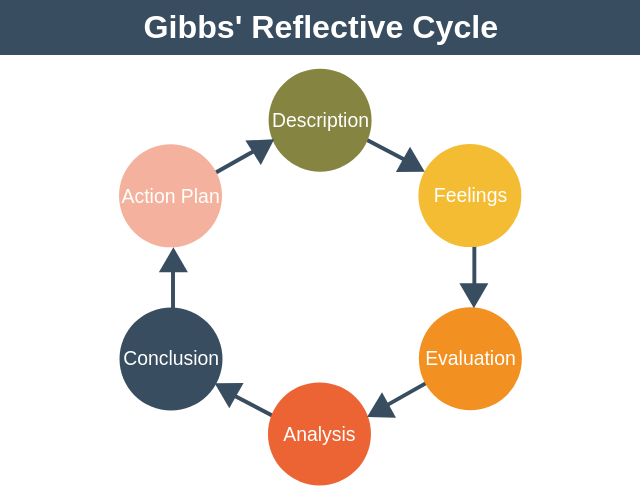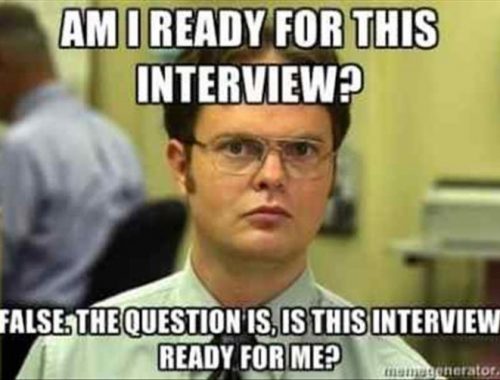Finding My Placement!
Cinematography has been a passion of mine for as long as I can remember. When the opportunity to complete a work placement for my degree came up, I couldn’t see myself trying to secure a work post anywhere else but the cinematography field. However, I didn’t realise how difficult securing this placement would be.

To reflect on my journey through finding, interviewing and securing my placement, I will be employing Gibb’s Reflective Cycle (Gibbs, 1988). This method of reflection allows for a clear description and analysis of my situation, and will help me examine what I could have done differently, as well as my emotions towards my experience. Gibb’s Reflective Cycle features six stages, which are; Description, Feelings, Evaluation, Analysis, Conclusion and Action Plan.
DESCRIPTION
“At this stage, it is important to get as much down about the event as you can in an objective way.”
(Jasper, 2013, 80)
It was early August when I began to send my CV off to every film production company in Belfast I could find, although I was met back with complete rejection on all fronts. Some companies had already taken on a placement student, and others just didn’t have space for someone undertaking work placement. Other companies failed to get back at all, prompting me to send more emails. This was when I finally received a response, from Paul Kennedy at Village Films inviting me for an interview over coffee. Village Films is an independent film production company founded in Belfast, which focuses on getting smaller director and writers’ stories made.

The interview itself was more of an informal chat than a serious interview, which calmed my nerves that had built up. We mainly discussed what I had done so far in university in regards to film production, as well as favourite films, what cameras we liked to shoot on and what I hoped to achieve in my career. During this interview, Paul told me that the placement would be more in office than on sets, and that I would mainly be doing script coverage, rather than shooting films. He told me to consider this, and get back to him on if I would still like to do my placement with him. Later that evening, after researching what script coverage would entail, I followed up with Paul over email explaining that I would still love to take the placement with Village Films. I was offered the position, which will begin in January, and I will mainly be focused on script coverage, although, Paul managed to get me a camera trainee position on a short film funded by NI Screen as part of my placement.
FEELINGS
My ambition and hopes for a successful placement were almost completely shattered as I faced rejection after rejection pop up in my email inbox. I was feeling disheartened and stressed, as the deadline rapidly approached to find a placement. Once I did receive an interview offer from Paul, I became so excited and hopeful again that this could be the one, though I was also filled with stress that I wouldn’t receive a position from the company. I was feeling very confident and excited after my interview, with only a slight sense of disappointment that my placement wouldn’t be cinematography focused. Receiving this offer of placement, from a successful company that I greatly admire, was a great boost of confidence for me.
EVALUATION
Overall, my experience of looking for a placement was stressful and quite negative. I was worried about finding a placement in time, and also finding a placement that I would actually enjoy.
However, the experience helped me learn key skills in perseverance, as despite the influx of rejection emails and calls, I continued my search to secure a placement.
ANALYSIS
I managed to secure a placement in a company I am genuinely interested in, through a successful interview, and I am excited to begin working there in the new year. Despite this success, I was rushed to secure the placement before the deadline, and have my paperwork filled out. It also took several weeks from my interview, to having the placement secured and my paperwork filled out.
This experience was an example that I need to work on my time management skills, as if I began my search for a placement earlier, I would have saved myself the stress of the looming deadline. On the other hand, it improved my skills in perseverance, as I kept trying to find an appropriate placement despite the constant rejections I was facing.
CONCLUSION
On reflection, I realise that I should have looked for a placement earlier, if I was to do something differently, as Gibb’s method suggests we must consider. I also think that I limited my opportunities to secure a placement, as I only looked at companies that were specifically in the film production sector.
ACTION PLAN
In future, I will give myself more time to complete tasks and meet deadlines, in order to work on my time management skills. I am also more prepared and realistic with my career goals within the film industry, as it is so competitive and small. As Gregory (2008, 51) writes, ‘Many of the jobs you will be hoping to find are not even likely to be advertised in the first place. This is because media jobs are frequently filled by ‘word of mouth’.’ The film industry is an industry based on networking, and I hope that my placement will offer me the opportunity to network and make key connections that could further my career.
BIBLIOGRAPHY
Gibbs, G. (1988). Learning by Doing: A Guide to Teaching and Learning Methods. London: FEU.
Gregory, G., Healy, R.J. and Mazierksa, E. (2008). Careers in Media and Film The Essential Guide. London: Sage Publications
Jasper, M. (2013). Beginning Reflective Practice. London: Cengage Learning
Hear Back From You Never
You May Also Like

Interview a New You! – Becoming an Interview Guru
24 February 2023
“Fake it ‘til you make it!”: Finding Success in a Simulated Interview
22 February 2023
